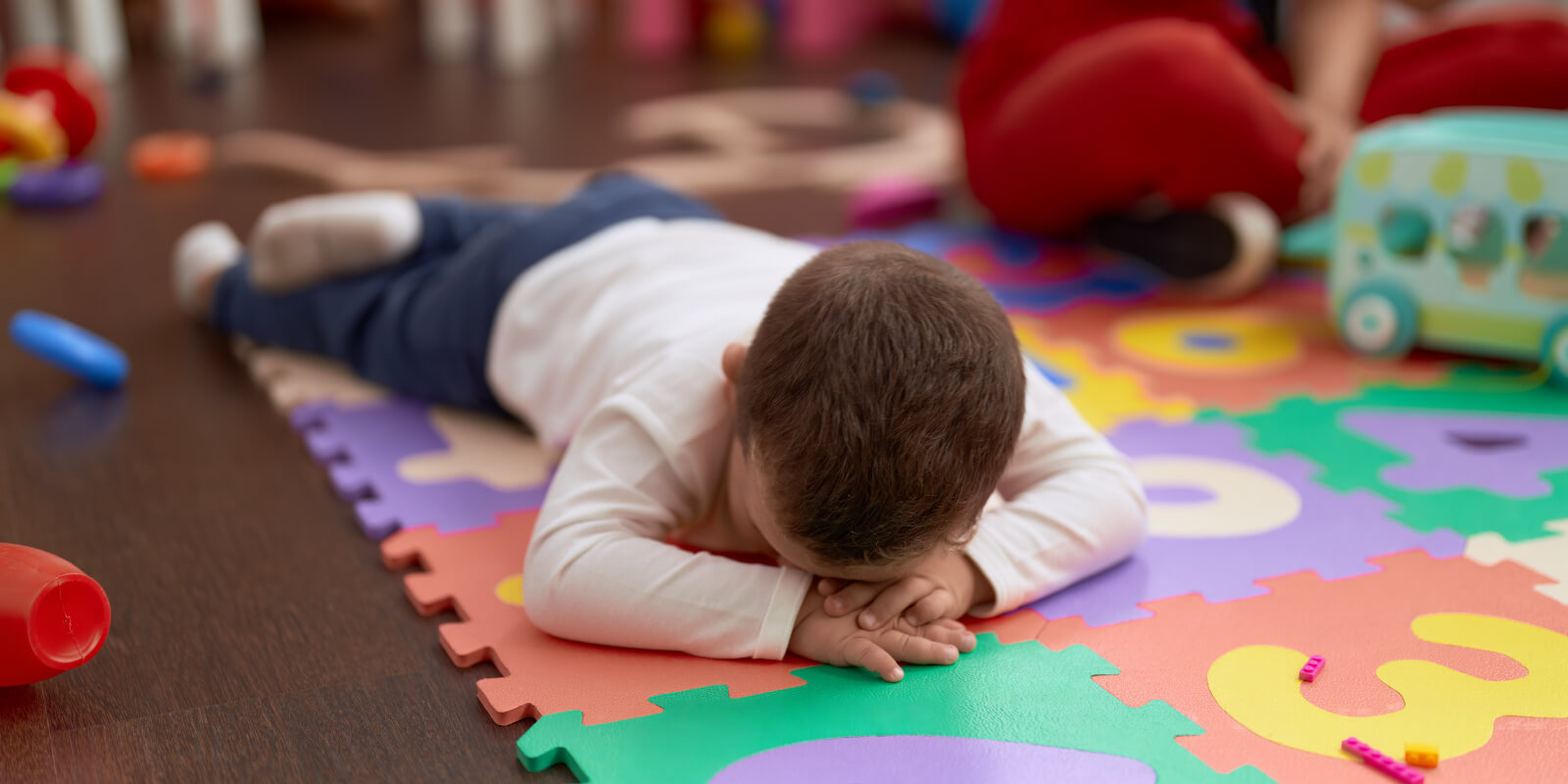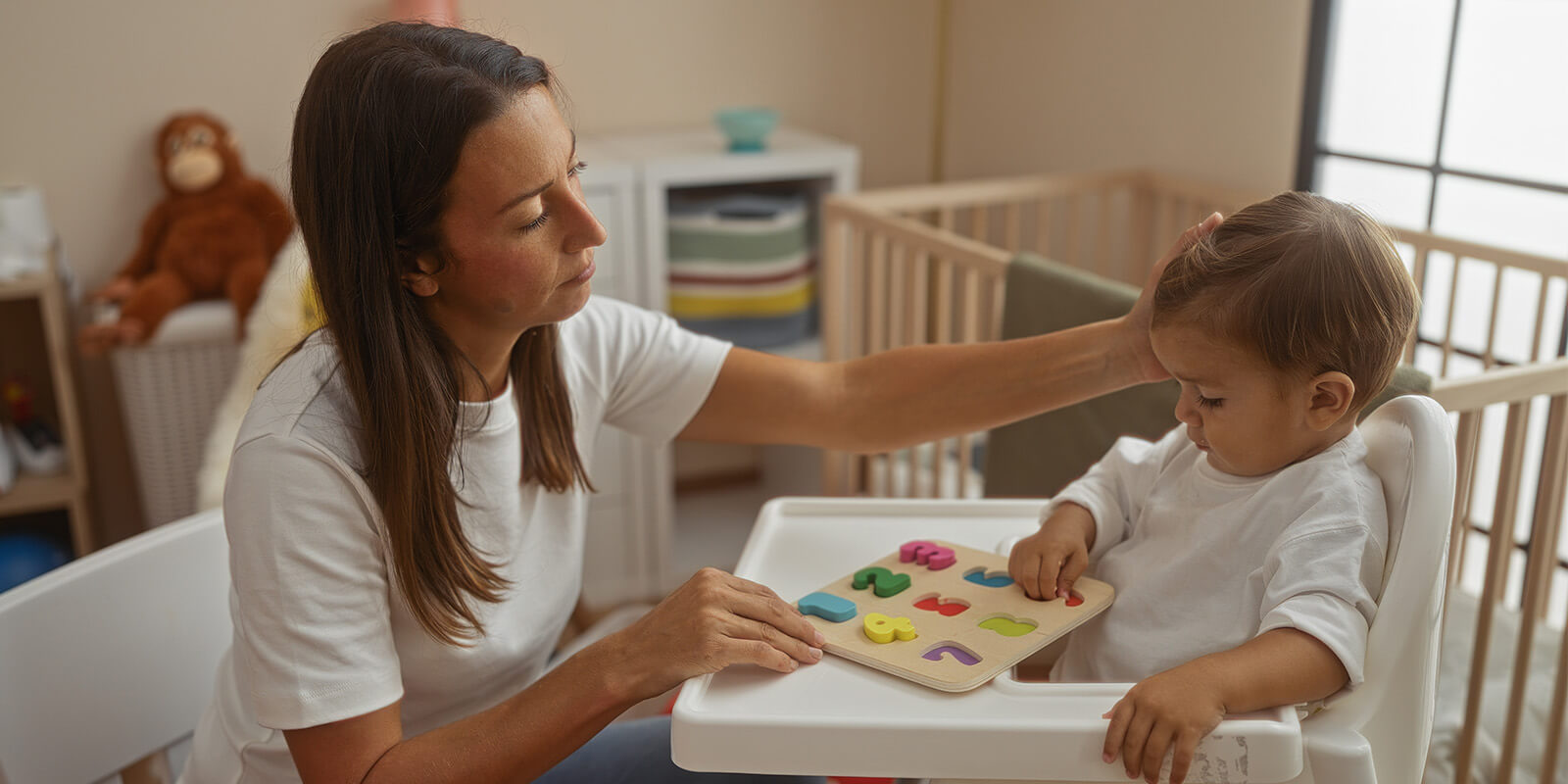Daycare can introduce a whole new world of routines, social situations, and expectations for toddlers and younger children —and with that can come big emotions and behaviors that may leave you feeling unsure.
Perhaps you’re grappling with toddler behavior issues in daycare. On one hand, these challenges might be part of typical development. On the other hand, if they persist or seem unusually intense, you might consider whether these behaviors are early signs of autism.
In this article, we’ll look at common behavioral hurdles you might encounter when a child starts daycare, spotlight potential early signs that could be suggestive of autism symptoms in young children and discuss the power of early intervention strategies for autism.
Navigating Common Daycare Behaviors
Many parents wonder if the hurdles their toddlers face in daycare are simply part of the “learning curve.” Children around the ages of 18 months to 3 years are still building critical skills, such as self-regulation and communication. When new rules and group dynamics are introduced, it’s natural for them to test boundaries or resist unfamiliar routines.
What to expect in typical circumstances
- Brief tantrums or clinginess during transitions (e.g., moving from playtime to snack time).
- Occasional conflicts with peers that resolve with guidance or redirection.
- Varying degrees of communication skills, often improving as they grow more comfortable speaking and interacting.
Potential signs of concern
- Meltdowns that escalate or linger to the point of disruption.
- Frequent aggression or withdrawal from peers that doesn’t improve over time.
- Minimal verbal or nonverbal interaction (little to no attempt at pointing, gesturing, or using words).
If your child’s difficulties result in significant concerns for your family, it can be an indicator that it’s time to explore evaluation and supportive services.
Recognizing Early Signs of Autism
It can be reassuring to know that many children share similar ups and downs in daycare. However, for some, these challenges might point to underlying developmental issues. Early signs of autism in toddlers often include communication delays, social interaction difficulties, repetitive behaviors, restrictive interest, and extreme responses to changes in routine or environment.
What to expect in typical circumstances
- Growing interest in social exchanges: while not always enthusiastic, a toddler will generally respond to peers and teachers in some way.
- Steady progression in language skills, even if vocabulary size or clarity fluctuates.
Potential signs of concern
- Limited or nonexistent attempts to socially connect—for instance, no seeking of eye contact or response to their name.
- Toddler communication difficulties that stay the same or worsen, rather than gradually improving.
- Preferring to play alone rather than with others.
- Rigid adherence to routine—excessive distress if something changes, like snack time being five minutes late.
If you notice your child demonstrating persistent signs like these, a deeper examination could be very helpful. Identifying autism in daycare is pivotal because starting therapy early can lead to more positive outcomes in language, social skills, school readiness skills, and overall behavior.
When to Seek Help
Every child’s journey is unique, and it’s not always clear when to consider getting help. As a parent, trust your instincts. If you sense that daycarechallenges and behavioral concerns are more than typical, it’s perfectly reasonable to seek a professional evaluation.
Caravel Autism Health’s Data-Driven Support
At Caravel Autism Health, we believe in meeting each child where they are—with empathy, patience, and expertise. We know it can be overwhelming to consider an autism evaluation or therapy, but it can also be the most empowering step you take. Our team specializes in supporting toddlers with autism, offering evidence-based Applied Behavior Analysis (ABA) and compassionate caregiver support.
One cornerstone of our work is PathTap™, our proprietary outcomes platform that revolutionizes how we track and enhance each child’s progress. Using the PathTap™ application, Caravel’s clinicians can track individual client progress in real-time. That data is collected cumulatively across all Caravel clients and is analyzed to identify ways to fine tune each individual child’s therapy to reach the best outcomes.
The results in helping children become more school-ready have been remarkable.
For instance, with the help of PathTap™, “Skill Development Opportunities” for children receiving therapy at Caravel have more than doubled since 2022, illustrating the powerful link between well-informed interventions and real-world improvements. (If you’re curious to learn more, visit our PathTap Outcomes page.)
Getting Started and Finding Hope
We know that daycare can be both an adventure and a challenge. If you’re wondering about social skill development in toddlers or if you’re worried about toddler communication difficulties and managing toddler tantrums, our caring professionals are here to help.
Visit our Get Started page and explore the FAQs to learn more about autism evaluation. At Caravel, we’re honored to be a part of your journey, and we’ll be with you to help you achieve better outcomes for your family every step of the way.



